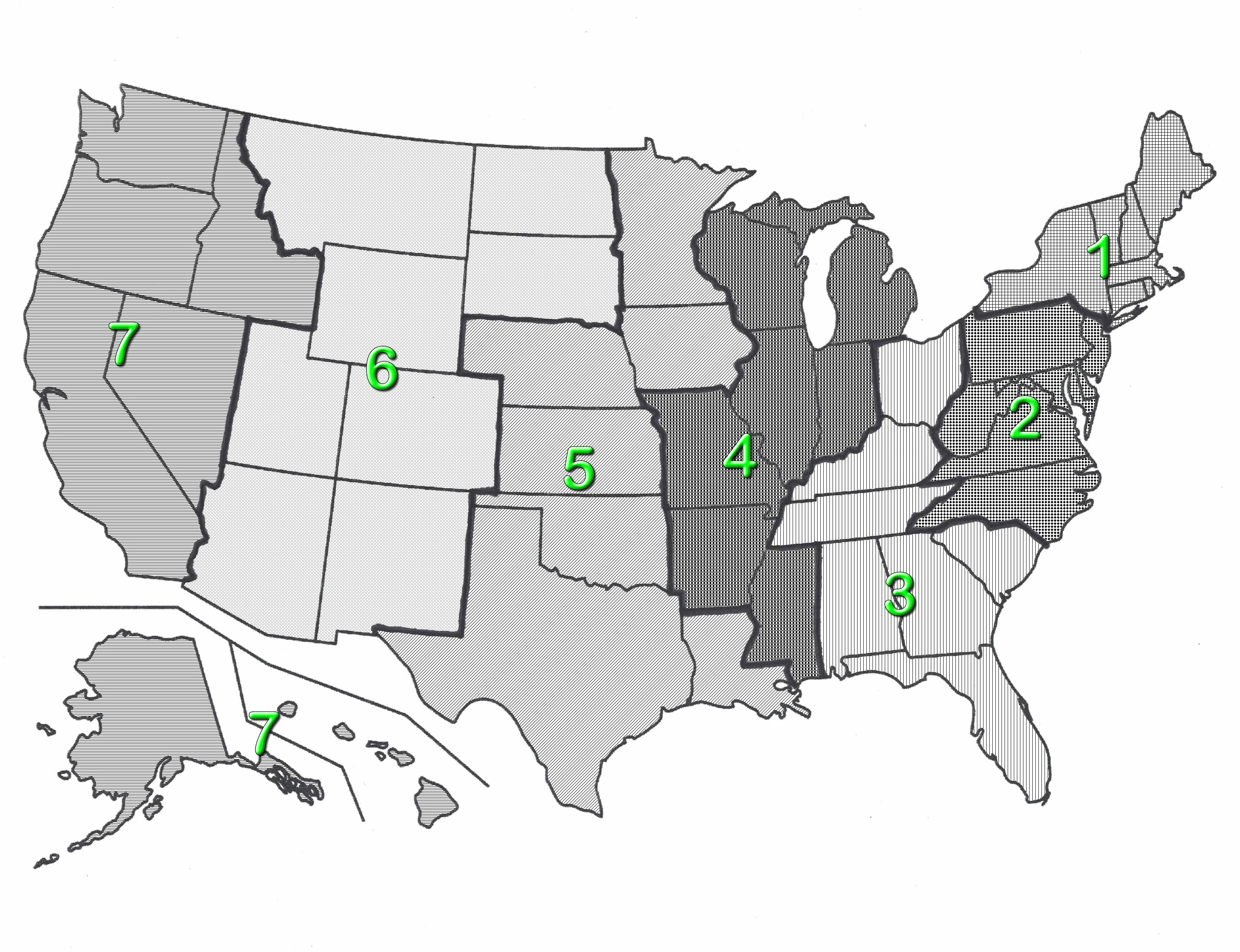Some Measures for Assuring Impartiality
Remarks
When and if the Constitutional Council is ever actually instituted, establishing and maintaining its reputation for impartiality will be of paramount importance in order for it to be successful in accomplishing what it is conceived to do. There will inevitably be situations involving geographic issues and jealousies. Below is a suggested scheme for dividing up the Constitutional Council’s Councilors into regions of non-jurisdiction intended to help maintain impartiality in such situations. For example, a way to divide the Councilors into seven such regions might be as follows:
Region 1 (Northeast): Maine, NH, Vermont, Massachusetts, Rhode Island, Connecticut, and New York
Region 2 (Mid-Atlantic): Pennsylvania, New Jersey, Maryland, Delaware, Virginia, West Virginia, North Carolina
Region 3: (South & Central) South Carolina, Georgia, Florida, Alabama, Tennessee, Kentucky, Ohio
Region 4: (Mid-West) Mississippi, Arkansas, Missouri, Illinois, Indiana, Michigan, Wisconsin,
Region 5: (Far Mid-West) Louisiana, Texas, Oklahoma, Kansas, Nebraska, Iowa, Minnesota
Region 6: (West) North Dakota, South Dakota, Montana, Wyoming, Utah, Colorado, Arizona, New Mexico
Region 7 (Pacific) California, Nevada, Idaho, Oregon, Washington, Alaska, HawaiiNotice 1) that the seven regions each have the same number of states (seven) in it, except for the least populous region (Region 6), which has eight states, and 2) that each side of a region borders on only one region, which is important for this scheme to work best.
This arrangement is conceived to help more or less automatically ensure that geographic conflicts of interest are handled impartially. For example, no Councilor would be allowed to be involved in any matter that involves not only his region but also his neighboring regions. Consider a more specific instance: Say the Constitutional Council decides to assign each Councilor to monitor a few Senators and Congressional Representatives for proper activities (ethical, lobbying, etc.). Then, for example, each Councilor in Region 3 would be assigned to Senators and Representatives in Region 1 one year, and the next year to Region 5 (not neighboring Regions 2, or 4, and of course not Region 3), then to Regions 6 and 7 the next two years, and back to Region 1 the following year, etc. The same principle would be used if Councilors are assigned to oversee the Federal election process in the various States.
A basic principle for assuring impartiality is to avoid being involved in making judgments and decisions in situations where one has existing relationships. Accordingly, in the situation just described, Councilors should further be sure that they have no other kind of relationship, e.g., college (either alma mater or rival college), or distant family or marital relationships, etc. with the legislators they are in charge of monitoring. Furthermore, when Region 3 comes back to monitoring Region 1 legislators, individual Councilors should be assigned to oversee an entirely new group of legislators. All of this is in the spirit of assuring impartiality.


